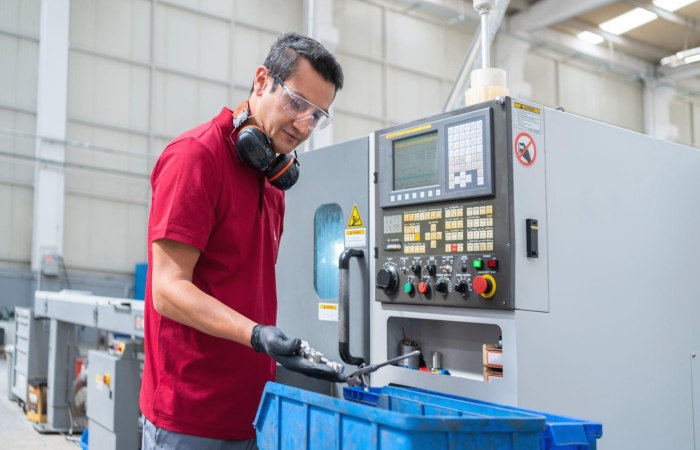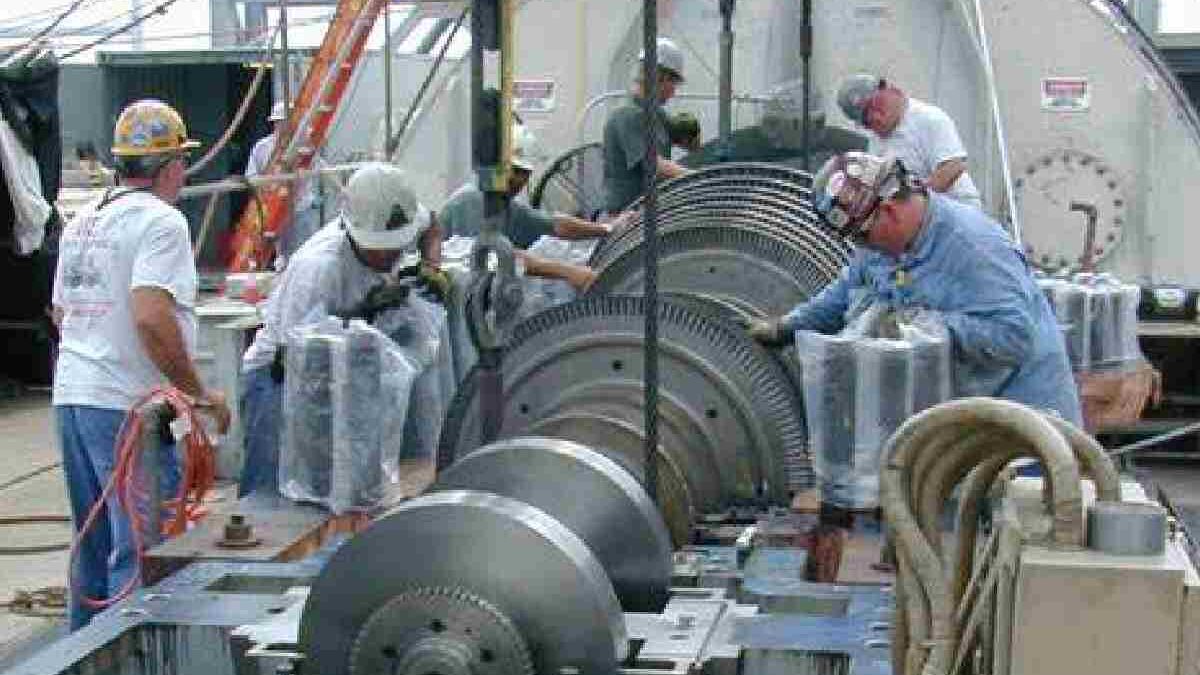Table of Contents
Introduction

The industrial machinery/components industry encompasses various products, from heavy equipment and machinery to electronic components and systems. This industry is essential to the manufacturing sector and is vital in keeping the global economy running. As a result, this industry has many high-paying jobs, ranging from engineering and design to management and sales. This response will explore some of the best-paying jobs in industrial machinery/components and the skills and qualifications required for each position.
Top 5 Best Paying Jobs In Industrial Machinery/Components

Here are five high-paying jobs in the industrial machinery and components industry:
- Industrial Machinery Mechanics: Industrial machinery mechanics install, maintain, and repair heavy-duty machinery used in manufacturing and other industries. The average annual wage for industrial machinery mechanics was $54,920 in May 2021.
- Industrial Engineers: Industrial engineers work to improve manufacturing processes and systems by analyzing data and implementing efficient solutions. The medium annual wage for industrial engineers was $88,950 in May 2021.
- Mechanical Engineers: Engineers design, develop, and test mechanical devices and systems. The medium annual wage for mechanical engineers was $90,160 in May 2021, according to the BLS.
- Electrical and Electronics Engineers: Electrical and electronics engineers design and develop electrical and electronic equipment, including industrial machinery and components. According to the BLS, the average yearly wage for electrical and electronics engineers was $103,390 in May 2021.
- Materials Engineers: Materials engineers research, design, and develop materials used in manufacturing, including industrial machinery and components. The average annual wage for resources engineers was $98,230.
Benefits Of Best Paying Jobs In Industrial Machinery/Components
There are several benefits to having one of the best-paying jobs in the industrial machinery/components industry. Here are a few:
- High earning potential: One of the most apparent benefits of having one of the best-paying jobs in this industry is the potential for high earnings. However these jobs typically require specialized skills and knowledge, and employers are willing to pay top dollar to attract and retain the best talent.
- Job security: The industrial machinery/components industry is a vital part of the economy, and there will always be a need for trained workers to design, manufacture, and maintain the machinery and components that keep businesses running. It means that jobs in this industry tend to be more stable and secure than those in other industries that are more susceptible to economic fluctuations. Opportunities for growth and advancement: The best-paying jobs in this industry often come with opportunities for development and improvement. And also you gain experience and expertise, you may be able to move into higher-level positions with more responsibility and higher salaries.
- Variety of work: Jobs in the industrial machinery/components industry can be very diverse, with opportunities to work in design, engineering, manufacturing, sales, marketing, and more. And also you can select a career path that bring into line with your comforts and strengths and continue learning and growing.
- Positive impact: Finally, many people find that working in the industrial machinery/components industry gives them a intelligence of purpose and fulfillment as they contribute to creating products and systems. And also that improve people’s lives and make businesses more efficient and productive.
Requirements To Get Best Paying Jobs In Industrial Machinery/Components

You must meet specific requirements to land the best industrial machinery/components jobs. Here are some familiar qualifications and skills that are typically sought after by employers in this field:
Education and Experience
Most high-paying industrial machinery/components jobs require a bachelor’s degree in mechanical engineering, electrical engineering, or a related field. However some positions may require a master’s degree or higher, depending on the level of specialization. In addition to formal education, relevant work experiences in the industry, such as internships or previous jobs, can significantly enhance your qualifications.
Technical Skills
Various technical skills are crucial in the industrial machinery/components industry. And also may include expertise in computer-aided design (CAD) software, computer-aided manufacturing (CAM) software, programming languages. And also other specialized tools and software used in the design, production, and maintenance of industrial machinery/components.
Knowledge of Industry Standards and Regulations
This field often requires familiarity with industry standards and regulations, such as ISO (International Organization for Standardization) certifications, OSHA (Occupational Safety and Health Administration) guidelines, and other relevant laws. Compliance with these standards is critical to ensure safe and efficient industrial machinery/components operation.
Project Management Skills
Many high-paying jobs in the industrial machinery/components industry involve managing projects, such as overseeing the design, development, and production of industrial machinery/components. Therefore, project management skills, including planning, organizing, coordinating, and monitoring, are often essential for successful project completion and meeting deadlines.
Communication and Interpersonal Skills
Effective communication and interpersonal skills are critical in the industrial machinery/components industry. You may need to collaborate with cross-functional teams, work with clients, and communicate with vendors or suppliers. And also decent written and verbal communication skills are essential for conveying technical information clearly and concisely.
Continuous Learning and Adaptability
The industrial machinery/components industry constantly evolves with technological advancements, materials, and processes. However The ability to continuously learn and adapt to new technologies, industry trends, and changing job requirements is crucial to stay competitive and securing the best-paying jobs.
Professional Certifications
Relevant professional certifications, such as Certified Manufacturing Engineer. Certified Automation Professional (CAP), or other industry-specific certifications. It can significantly enhance your qualifications and increase your chances of landing the best-paying jobs in the industrial machinery/components industry.
By meeting these requirements and developing a solid skill set, you can position yourself for success and increase your chances of securing the best-paying jobs in the industrial machinery/components industry. In addition, gaining practical experience through internships or entry-level positions is essential to strengthen your qualifications further and enhance your career prospects.
Conclusion
This article describes Best Paying Jobs In Industrial Machinery/Components. What are there requirements needed to get a good job? Also, it shows different types of jobs and their benefits, which are explained in this article.

